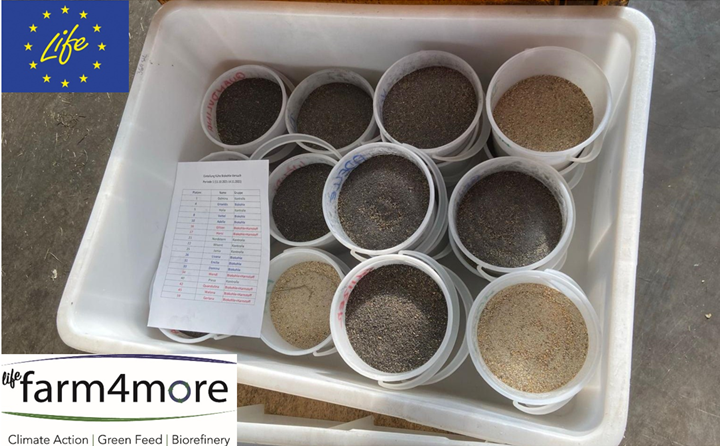The results were published in the Czech Journal of Animal Science. The publication can be downloaded at the following link: https://cjas.agriculturejournals.cz/artkey/cjs-202306-0001_effect-of-biochar-or-biochar-and-urea-supplementation-on-feed-intake-milk-yield -feed-conversion-and-methane-p.php .
Below is a brief summary:
In this experiment, the effect of supplementary feeding of biochar or biochar and urea on the performance and methane production of dairy cows was examined. For this purpose, 18 dairy cows were used and the experiment was carried out as a 3 × 3 Latin square. The cows were divided into three feeding groups, which differed in the feed additive: control group without feed additive (KO), biochar supplementary feeding (BK) and biochar and urea supplementary feeding (BK+HS). The experiment consisted of 3 periods, with the allocation of cows to the feeding groups being swapped after each experimental period, so that at the end each cow was in each feeding group once. In all three feeding groups, the cows received a basic feed mixture for free consumption and an average of 5 kg of concentrate per day. Methane production was measured in respiratory chambers. The supplementary feeding of biochar or biochar and urea had no significant influence on the intake of dry matter, energy and usable crude protein. However, lignin intake in the BK group and crude protein intake in the BK+HS group were higher than those in the KO group. Feeding the feed additives had little influence on milk yield and milk composition. Only the urea content of the milk was significantly higher in the BK+HS group than in the other two groups. Feed conversion, ration digestibility and methane production were not affected by the addition of feed additives. In summary, supplementing biochar in dairy cattle rations does not reduce methane emissions, but also does not have a negative impact on dairy cow performance.
The authors would like to thank the European Union for its financial contribution to the Life project “LIFE Farm4More - Future Agricultural Management for multiple outputs on climate and rural development” with the project number LIFE 18 CCM /IE/001195 Farm4More. Further information about the project can be found at www.farm4more.eu






